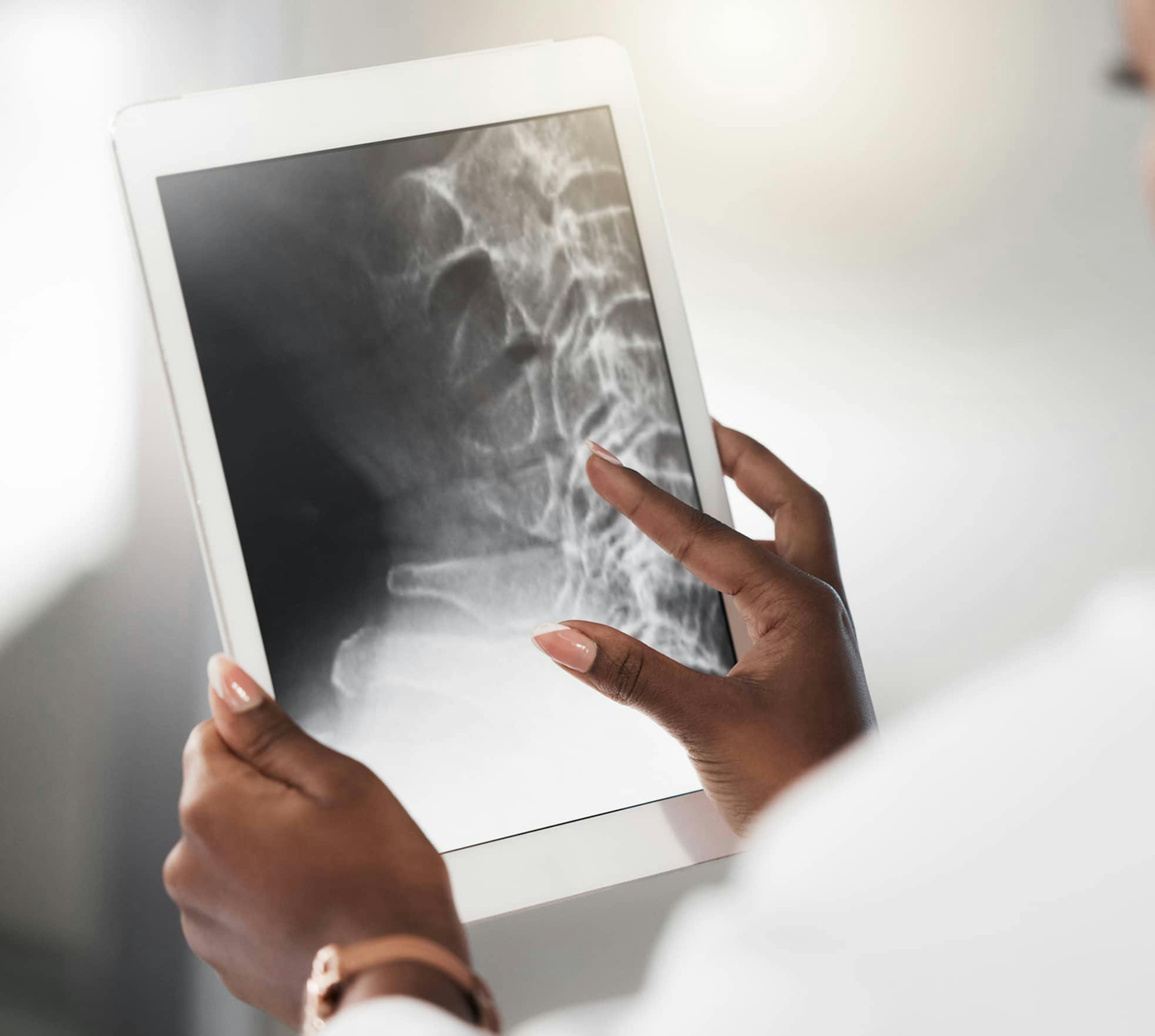Spinal infections, often caused by bacteria or fungi, can lead to severe back pain and neurological deficits. CFRS utilizes state-of-the-art diagnostic tools and therapeutic techniques to address these issues, offering patients a chance at a healthier and pain-free life.
Spinal Infections Q & A
What type of spinal infection might I develop?
What symptoms develop due to a spinal infection?
How do specialists treat spinal infections?
What type of spinal infection might I develop?
Spinal infections develop when bacteria, fungi, or other microorganisms travel to your spine through the bloodstream. The infection may originate in another part of your body, or the microorganisms may come through a wound, spine trauma, or during a surgical procedure. The three most common spinal infections include:
Vertebral osteomyelitis
Vertebral osteomyelitis is an acute or chronic bone infection.
Discitis
Discitis occurs when the intervertebral discs develop an infection.
Epidural abscess
An epidural abscess develops when pus accumulates in the epidural space surrounding your spine.
What symptoms develop due to a spinal infection?
Spinal infections typically cause pain, but the symptoms vary depending on the type of infection. Vertebral osteomyelitis causes one or more of the following:
- Back pain
- Fever
- Chills
- Fatigue
- Weight loss
- Muscle spasms
- Intolerance to light
- Pain during urination
- Difficulty urinating
- Urinary or bladder incontinence
- Weakness or numbness in your arms or legs
- Swelling or drainage from the incision
You won’t have symptoms at the start of discitis; then, the infection gradually progresses to cause severe back pain. As an epidural abscess enlarges, it causes pain and possibly a fever. If it presses against spinal nerves, you may experience pain or tingling that radiates down your arms or legs.
How do specialists treat spinal infections?
Your provider at the Center for the Functional Restoration of the Spine reviews your medical history, performs a physical examination, and runs blood tests to check for an infection. They also order an MRI, which confirms the presence and extent of infection. An MRI also shows spinal cord compression. Since bacteria cause most spinal infections, the first line of treatment includes antibiotic therapy. Many patients with vertebral osteomyelitis need long-term oral and intravenous antibiotic therapies to eliminate them. When severe or chronic osteomyelitis causes ongoing vertebral deterioration, you may need surgery to clean away the infection and stabilize the spine. In addition to antibiotics, the team at the Center for the Functional Restoration of the Spine treat discitis with a cast or brace to immobilize your spine and promote healing. They take care of an epidural abscess by removing the infection. If you develop back pain, especially if it comes together with a fever and urinary symptoms, call the Center for the Functional Restoration of the Spine or book an appointment online.






